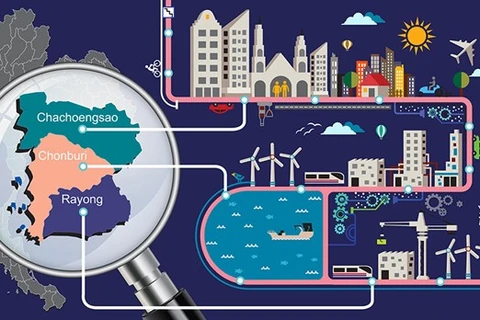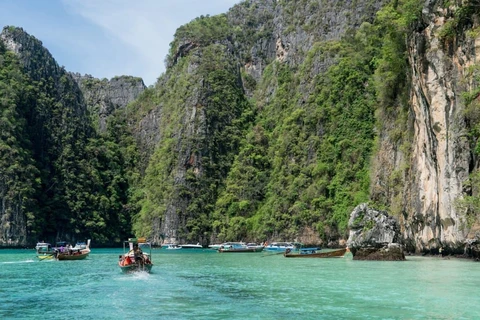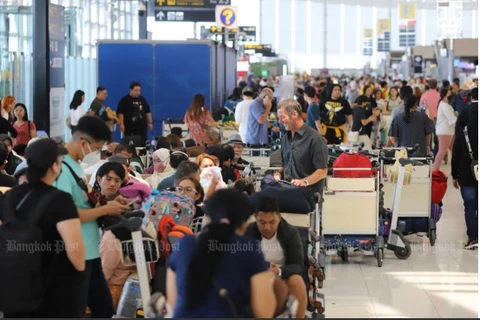Bangkok (VNA) - The Office of the Cane and Sugar Board (OCSB) of Thailand estimated the sugar cane output for the 2022 - 2023 crop year increased just 1.9% to 93.8 million tonnes, lower than forecast due to drought and more farmers switching to cassava cultivation.
Panuwat Triyangkunsri, Secretary-General of the OCSB, said the government previously expected the sugar cane production would exceed 100 tonnes in the crop year.
However, drought and high farming costs were blamed for the output falling short of expectations, while many farmers decided to grow cassava instead due to this crop’s higher prices.
All the sugar cane, with a commercial cane sugar (CCS) sweetness level of 13.3, was supplied to 57 sugar factories across Thailand between December 1 last year and April 6. Of the 93.8 million tonnes, 63.1 million tonnes, or 67.2%, was fresh sugar cane. The remaining 30.7 million tonnes, or 32.7%, was the burned one.
The OCSB is aware of the high amount of burned sugar cane despite the state ban on harvesting by burning. Many farmers prefer the burning method as it is easier than harvesting by cutting fresh plants, which requires a number of workers.
Due to labour shortages, sugar cane plantations in Thailand mainly rely on migrant workers, according to the OCSB./.
Panuwat Triyangkunsri, Secretary-General of the OCSB, said the government previously expected the sugar cane production would exceed 100 tonnes in the crop year.
However, drought and high farming costs were blamed for the output falling short of expectations, while many farmers decided to grow cassava instead due to this crop’s higher prices.
All the sugar cane, with a commercial cane sugar (CCS) sweetness level of 13.3, was supplied to 57 sugar factories across Thailand between December 1 last year and April 6. Of the 93.8 million tonnes, 63.1 million tonnes, or 67.2%, was fresh sugar cane. The remaining 30.7 million tonnes, or 32.7%, was the burned one.
The OCSB is aware of the high amount of burned sugar cane despite the state ban on harvesting by burning. Many farmers prefer the burning method as it is easier than harvesting by cutting fresh plants, which requires a number of workers.
Due to labour shortages, sugar cane plantations in Thailand mainly rely on migrant workers, according to the OCSB./.
VNA

























